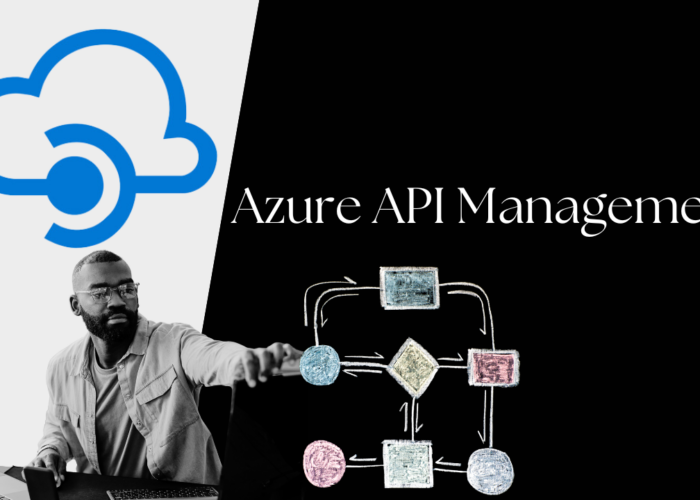We can claim with absolute certainty that API Management has become the main method of digital business transformation.
The API technological concept – a system that allows an application to interact with other applications without knowing their internal functioning in detail – falls short when analysing the importance that betting on this model could have for a company.
-[POST] Why is digital transformation so important to your company?-
APIs have a much greater significance from a business standpoint, since they enable the provision of small services of interest to third parties in exchange for money, which means that they can become the main generator of revenue for a company if it focuses all of its efforts on taking advantage of their potential.
This is why the true digital business transformation has much more to do with the way in which they are managed rather than with technological development. Which is the reason why API management is key.
What is API Management?
API can help any developer offer applications that are useful for a particular group of users. But in order to carry out this process, a secure and scalable environment is required, which offers specific functionalities. This is what we know as API Management.
Any company that bets on APIs as a core element of its business requires API Management. It is only though it that it will be able to maintain an adequate control over matters as important as access permissions, the design of monetisation mechanisms, potential security breaches or the way in which others use the APIs.
-Interesting post: How to make your business grow with open source APIs-
As a result, API management allows those who publish an API and its users to oversee a great number of important aspects.
When speaking of API management, we are referring to offering developers at least three things:
– An entryway that allows for the monitoring of traffic and the analysis of the way in which APIs are used. Here is where the flow of communications and processes between APIs can be managed.
– A manager, through which APIs are published and edited, and which is used to handle their life cycle.
– A development portal, which offers an API listing and their documentation, as well as statistics, testing systems, etc.
Why is API Management important for your business? Benefits of API Management
API management is crucial for businesses for several reasons. By implementing a robust API management strategy, organisations can:
Governance and Security
- Ensure compliance with corporate policies and external regulations around data privacy.
- Enforce rules around data governance and API security to safeguard against unauthorised access and malicious use.
- Limit access to applications or users with the correct API keys or other authentication credentials.
Automation
- Automate the creation of APIs, saving time for developers and avoiding duplicate work.
- Support templatising and accelerating deployment.
Analytics and Reporting
- Provide insights into API usage and performance, enabling data-driven decision-making.
- Package metrics into reports to share with the larger team and organisation.
Distribution
- Create a developer portal and distribute APIs along with their documentation.
Onboarding
- Provide a centralised repository for API documentation, accelerating the adoption of new APIs.
Increased Productivity
- Provide a centralised platform for managing APIs, allowing developers and other stakeholders to work more efficiently and collaboratively.
Improved Agility and Flexibility
- Enable businesses to quickly adapt to changing market conditions and customer needs by rapidly developing and deploying new applications and services.
Enhanced Customer Experience
- Leverage APIs to create more personalised and engaging experiences for customers across multiple channels and touchpoints.
Reduced Costs
- Eliminate redundant development efforts, improve efficiency, and leverage existing infrastructure and resources.
Better Integration
- Enable businesses to integrate disparate systems and data sources, creating a more seamless and connected digital ecosystem.
Overall, API management is critical for businesses that want to stay competitive in today’s fast-paced digital landscape. By implementing a comprehensive API management strategy, businesses can improve security, increase efficiency, reduce costs, and provide better experiences for customers.
How to evaluate an API Management tool? Main purposes and requirements of an API Management platform
When evaluating an API management tool, it is essential to consider several factors that can affect the quality, reliability, agility, speed and cost-effectiveness of your APIs. Below are common criteria for evaluating potential API Management platforms for your business:
Connected experiences
A good API management platform should be capable of offering a balance between access to the systems, stored data and the functionalities with a reliable back-end system.
Thanks to this, a wide spectrum of interesting goals can be accomplished for all agents, which range from offering APIs to external developers to expand their usefulness and generate new business models, to allowing companies to develop and launch new products for their customers in an agile manner.
Efficient operations
Users of any application demand an increasingly faster and more efficient execution. However, one needs to keep in mind the difficulty that executing the APIs implies in a variety of platforms and different devices, since managing this is very difficult for the company.
Therefore, the API platform should be prepared to offer efficient answers in regard to visibility and control in multiple scenarios.
A company that uses an API platform expects it to facilitate the job of automating processes, maintaining an adequate data flow, managing access to APIs and, overall, for the operations to be performed efficiently, regardless of the circumstances surrounding their operation.
Actionable Intelligence
Security is a basic need, and an API platform should be able to analyse the information and detect suspicious behaviours that may imply a threat, whether stemming from bots or other means.
The strengthening of the security systems will help the company prevent cyber criminals from introducing malware into organisations that work with APIs, thereby offering extra reliability to their customers.
Actionable intelligence therefore provides a safer environment that increases customer engagement.
Costs
Efficient API operation can lead to significant cost savings by replacing more resource-intensive ways of delivering data and services.
Ensure that the API management tool optimises the interface to respond to requests quickly and agilely.
CONCLUSIONS
API Management is a fundamental tool for accelerating a company’s digital business. With its ability to optimise the development and reuse of APIs, companies can significantly reduce costs and time to market. In addition, it provides metrics and reporting on API usage and performance, enabling more informed, data-driven decisions for a better digital transformation strategy. In short, good API management can improve the quality and efficiency of internal and external processes, which translates into greater value for the business.
If you have doubts and need more information about API Management and how it can benefit your company, contact us! We will advise you on the best solution for your company.


Reduce costs, complexity and technical debt with your API portfolio
Start making APIs work for your business, talk to our experts!
contact us about api management






